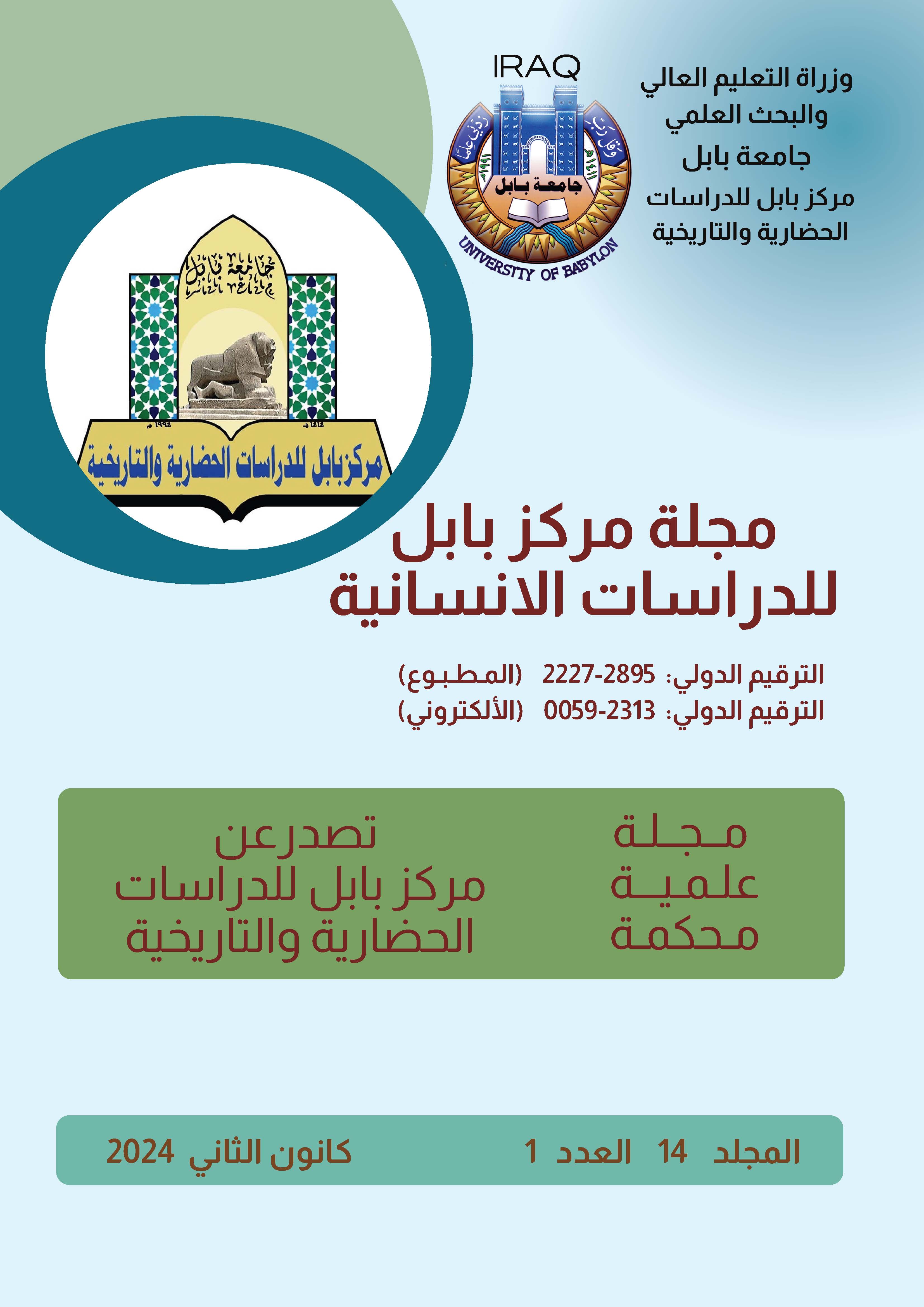الاسباب والدوافع السياسية لأقصاء العلماء واثرها في الدولة العربية الاسلامية في العصر الاموي(41-132ه/661_749م)
الكلمات المفتاحية:
اقصاء، العلماء ،العصر، الاموي ، الاسباب السياسيةالملخص
تمتع العلماء في الدولة العربية الإسلامية، ولاسيما في العصر الاموي، بمكانة مميزة من قبل الخلفاء الامويين اذ اهتموا بالعلم والعلماء، وبلغت الحركة العلمية ذروتها ، إلا أن العديد من العلماء تعرضوا للإقصاء والابعاد في العصر الاموي، و واختلفت الاسباب الدوافع التي أدت إلى استبعادهم واقصائهم ، وكانت الاسباب و الدوافع السياسية احد الدوافع الرئيسية وأهمها , والتي دفعت السلطة لأبعاد العلماء, فقد يكون الاقصاء لمعارضة السلطة او الخروج عليها, او انتقاد سياستها وهي سياسة اتبعها أكثر الخلفاء والولاة الامويين الذين لا يسمحون بمخالفة سياستهم وسلطتهم والتي من شأنها التأثير على الأوضاع الداخلية للخلافة. وكان سبب خروج العلماء على السلطة نتيجة لسياسة بعض ولاة الخلفاء الامويين والتي اتصفت بالشدة والعنف والقسوة. ولا سيما سياسة الحجاج بن يوسف الثقفي مما دفع عدداً من الفقهاء والعلماء لمواجهة ومعارضة هذه السياسة ومحاولة الحد منها.
وظهر مصدر اخر لقرار الاقصاء ,في العصر الاموي فقد كان الولاة الذين يعينون من قبل الخليفة لهم الحق في اصدار قرار الاقصاء ومن ذلك ما قام به الحجاج بن يوسف الثقفي بأقصاء عدد من العلماء والفقهاء.
و تعددت وسائل واساليب الاقصاء فمنها بالقتل او السجن او المصادرة او التعذيب او النفي او التشهير والاهانة ، واستخدمت في اقصاء بعض العلماء اكثر من وسيلة واحدة قد تصل الى ثلاثة او اكثر معا. وما ترتب على ذلك من آثار ونتائج إيجابية وسلبية. كانت النتائج السلبية كثيرة على البلد المقصي منه عند مقارنتها بالإيجابية. كان لأقصاء العلماء اثاره السلبية على الدولة العربية الاسلامية في العصر الاموي ، على البلد المقصي منه ،اذ خسرت الخلافة العديد من العلماء ، وكان لخسارتهم اثر كبير على الدولة .بينما كان لأقصاء العلماء وابعادهم من مدنهم اثاره الايجابية على المناطق التي اقصوا اليها اذ استفاد اهلها من علمهم وفضلهم .







